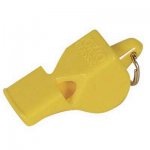fcch
Salmo salar addict
Got the idea for a thread over on another board.
The season is winding down (slowly), ... lets finish it off and all come home safely.
Seems we can put almost everything we want in a vest or pouch.
How many of us carry a few basic things to ease the mishaps (minor and major) that happen across our path ??
I keep a well stocked kit in the pickup that is the envy of many ambulance crews (last time I was the first to arrive on a car accident, the EMS team that arrived second didn't even open their bags, except for a splint and a spinal board).
When I'm on the river (or in the forest anywhere), I've got some minor items in a pouch that attaches up over my left shoulder.
A basic first aid kit, whistle is already on my vest, a bit of high carbo paste or power bars, some dextrose paste.
Ideas ??
Comments ??
The season is winding down (slowly), ... lets finish it off and all come home safely.
Seems we can put almost everything we want in a vest or pouch.
How many of us carry a few basic things to ease the mishaps (minor and major) that happen across our path ??
I keep a well stocked kit in the pickup that is the envy of many ambulance crews (last time I was the first to arrive on a car accident, the EMS team that arrived second didn't even open their bags, except for a splint and a spinal board).
When I'm on the river (or in the forest anywhere), I've got some minor items in a pouch that attaches up over my left shoulder.
A basic first aid kit, whistle is already on my vest, a bit of high carbo paste or power bars, some dextrose paste.
Ideas ??
Comments ??

